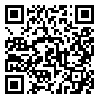Sat, Jan 18, 2025
[Archive]
Volume 20, Issue 4 (December (Special Issue on ADLEEE) 2024)
IJEEE 2024, 20(4): 23-32 |
Back to browse issues page
Download citation:
BibTeX | RIS | EndNote | Medlars | ProCite | Reference Manager | RefWorks
Send citation to:



BibTeX | RIS | EndNote | Medlars | ProCite | Reference Manager | RefWorks
Send citation to:
D’Souza S, Reddy S N, Tarun S K, P S, acharya k A. Transforming Cardiac Care: Machine Learning in Heart Condition Prediction Using Phonocardiograms. IJEEE 2024; 20 (4) :23-32
URL: http://ijeee.iust.ac.ir/article-1-3324-en.html
URL: http://ijeee.iust.ac.ir/article-1-3324-en.html
Abstract: (512 Views)
The incidence of heart-related illnesses is on the rise worldwide. Heart diseases are primarily caused by a multitude of parameters, including high blood pressure, diabetes, and excessive cholesterol, which are controlled by poor dietary and lifestyle choices. The growth in cardiovascular diseases (CVD) is mostly due to several other behaviors, such as smoking, drinking, and sleeplessness. In the research, machine learning-based prediction methods work on the audio recordings of heartbeats known as phonocardiograms (PCG) to develop an algorithm that differentiates a normal healthy heart from an abnormal heart based on the heart sounds. The data set consists of 831 normal and 260 abnormal data, and the duration of each sample is 5 seconds. Features extracted from the data are up-sampled and applied to the logistic regression and random forest classification models. The developed models record a classification accuracy of 71% for logistic regression and 94% for the random forest model. Further, artificial neural networks (ANN) and Deep learning networks have been trained to improve performance and demonstrated an accuracy of 94.5%.
Keywords: Phonocardiogram (PCG), machine learning, logistic regression, random forest, Deep learning
Type of Study: Closed - 2024 Special Issue on Applications of Deep Learning in Electrical and Electronic Engineerin |
Subject:
Biomedical Signal Processing
Received: 2024/06/08 | Revised: 2025/01/03 | Accepted: 2024/11/16
Received: 2024/06/08 | Revised: 2025/01/03 | Accepted: 2024/11/16
| Rights and permissions | |
 |
This work is licensed under a Creative Commons Attribution-NonCommercial 4.0 International License. |







